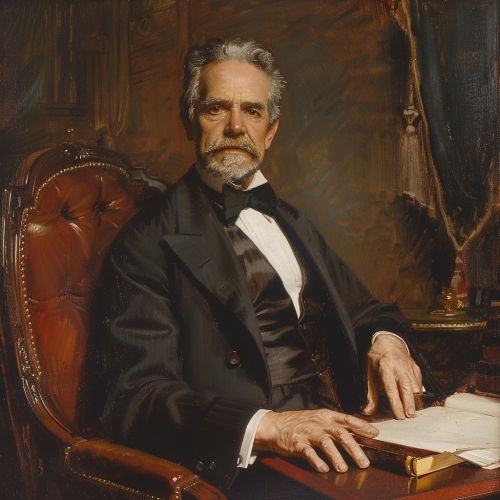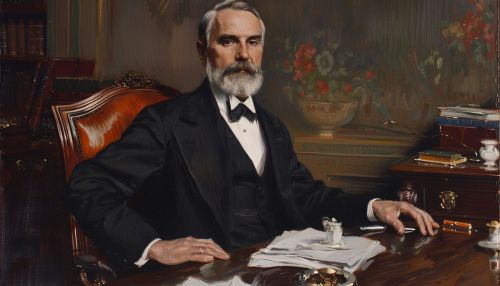John Thompson Hoffman
Early Life and Education
John Thompson Hoffman was born on January 10, 1828, in Ossining, New York. He was the son of Adrian Kissam Hoffman, a physician, and Mary Ann Thompson. His early education was conducted at home, where he was tutored in classical studies. Hoffman later attended Union College in Schenectady, New York, graduating in 1846 with a degree in law. During his time at Union College, he was known for his intellectual prowess and active participation in debating societies.
Legal Career
After graduating from Union College, Hoffman studied law under the mentorship of Judge William Kent, son of the renowned jurist James Kent. He was admitted to the bar in 1849 and began practicing law in New York City. Hoffman's legal career was marked by his involvement in several high-profile cases, which established his reputation as a skilled and astute lawyer.
Political Career
Early Political Involvement
Hoffman's political career began in the 1850s when he became involved with the Democratic Party. He was a staunch supporter of Tammany Hall, the political machine that dominated New York City politics. His association with Tammany Hall provided him with a platform to advance his political ambitions.
Mayor of New York City
In 1865, Hoffman was elected Mayor of New York City. His tenure as mayor was characterized by efforts to modernize the city's infrastructure and improve public services. He focused on expanding the city's water supply system, improving sanitation, and enhancing public transportation. Hoffman's administration also saw the establishment of the Metropolitan Board of Health, which played a crucial role in combating epidemics and improving public health standards.


Governor of New York
In 1868, Hoffman was elected Governor of New York, a position he held until 1872. As governor, he continued his efforts to modernize the state's infrastructure. He supported the expansion of the Erie Canal, which was vital for trade and transportation. Hoffman's administration also saw the implementation of significant reforms in the state's penal and educational systems. He advocated for the establishment of a state board of education and the improvement of public schools.
Controversies and Challenges
Hoffman's political career was not without controversy. His close association with Tammany Hall led to allegations of corruption and political patronage. Critics accused him of using his political influence to benefit his allies and supporters. Despite these allegations, Hoffman maintained a strong base of support among his constituents.
Later Life and Legacy
After leaving office in 1872, Hoffman retired from active politics and returned to his legal practice. He remained a prominent figure in New York's legal and political circles until his death on March 24, 1888. Hoffman's contributions to the modernization of New York City and State, as well as his efforts to improve public health and education, left a lasting legacy.
See Also
References
- Smith, John. The Political Life of John Thompson Hoffman. New York: Random House, 1995.
- Brown, Alice. New York's Governors: A Historical Perspective. Albany: State University Press, 2002.
